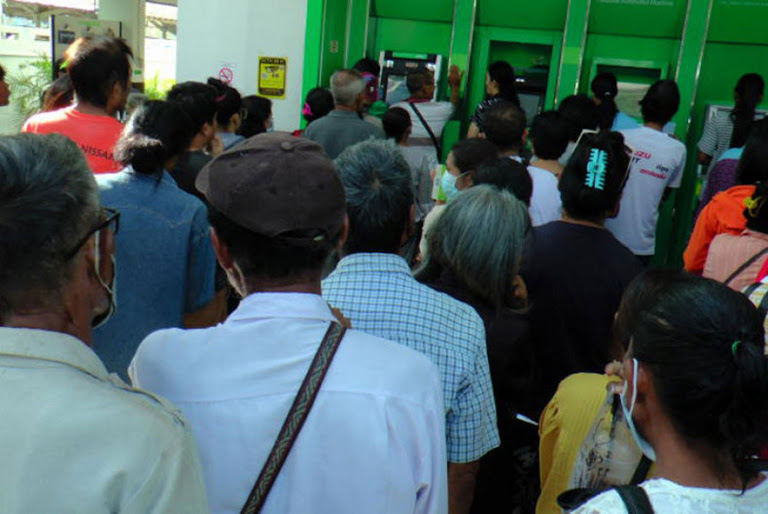Thailand Delays Digital Wallet Launch, Cites Economic Concerns.
Economic headwinds and Moody’s credit outlook downgrade prompt a reassessment focusing on SMEs and infrastructure investment.

The promise of a 10,000-baht digital handout, a cornerstone of the current Thai government’s economic policy, is facing a reckoning. While officials are keen to frame the situation as a strategic “delay,” the underlying reasons point to a far more complex interplay of economic realities, shifting global dynamics, and the perennial challenge of balancing short-term stimulus with long-term structural reform. What was once envisioned as a boost to consumer spending for young people aged 16 to 20 is now being re-evaluated, with the government signaling a potential shift toward infrastructure investments and support for small and medium-sized enterprises (SMEs).
The news, as reported by the Bangkok Post, reveals a government caught between its initial pledges and the evolving economic landscape. Finance Minister Pichai Chunhavajira’s statements emphasize that the project isn’t “scrapped but only delayed,” yet the rationale behind the postponement suggests a more fundamental reassessment. Concerns raised by the National Economic and Social Development Council (NESDC) and the Bank of Thailand (BoT) appear to have prompted a re-evaluation of the handout scheme’s effectiveness, particularly considering the perceived limited impact of previous phases.
This situation raises crucial questions about the efficacy of direct cash transfers as a stimulus tool, especially when weighed against the need for more sustained investment in infrastructure and systemic reforms. The shift in focus is also likely influenced by external factors, notably the new US trade policy, which necessitates a broader rethinking of Thailand’s economic strategies. This is creating a tension for policymakers.
The government’s decision-making process appears to involve navigating a series of complex factors:
- Economic Trends and Projections: Reports from economic agencies, likely pointing towards subdued growth or potential risks, are influencing the shift away from immediate consumption stimulus.
- US Trade Policy: The changes implemented by the US require the country to focus on more long-term, sustained growth.
- Moody’s Downgrade: The negative shift in Thailand’s credit outlook signals caution to investors.
- Revenue Collection Concerns: Fears about falling tax revenues are pushing for more focused government spending.
- SME Support: There is a need for small to medium-sized enterprises to increase their competitiveness.
The pivot away from the handout program, while officially framed as a delay, highlights a broader debate about the role of government in economic development. Is it more effective to directly stimulate consumption through cash transfers, or to focus on long-term investments in infrastructure and structural reforms that can foster sustainable growth? The answer, of course, is never absolute and depends on a complex interplay of context, priorities, and political considerations.
The government’s dilemma can be summed up as follows: honor a campaign promise designed to win votes, or respond to the cold, hard reality of economic headwinds by prioritizing strategic investments and structural adjustments. The choice reflects a tension inherent in democratic governance — the balance between short-term political imperatives and long-term economic well-being.
The delay, or potential abandonment, of the digital handout program raises questions about the government’s credibility. Minister to the Prime Minister’s Office Chousak Sirinil attempts to deflect potential legal challenges by suggesting similar situations have been handled through parliamentary debate. However, the underlying issue remains: can a government effectively pivot away from a major campaign promise without undermining public trust? This is likely one that the current ruling party, Pheu Thai, will have to reckon with. It remains unclear what impact the shift will have on support for the party.









